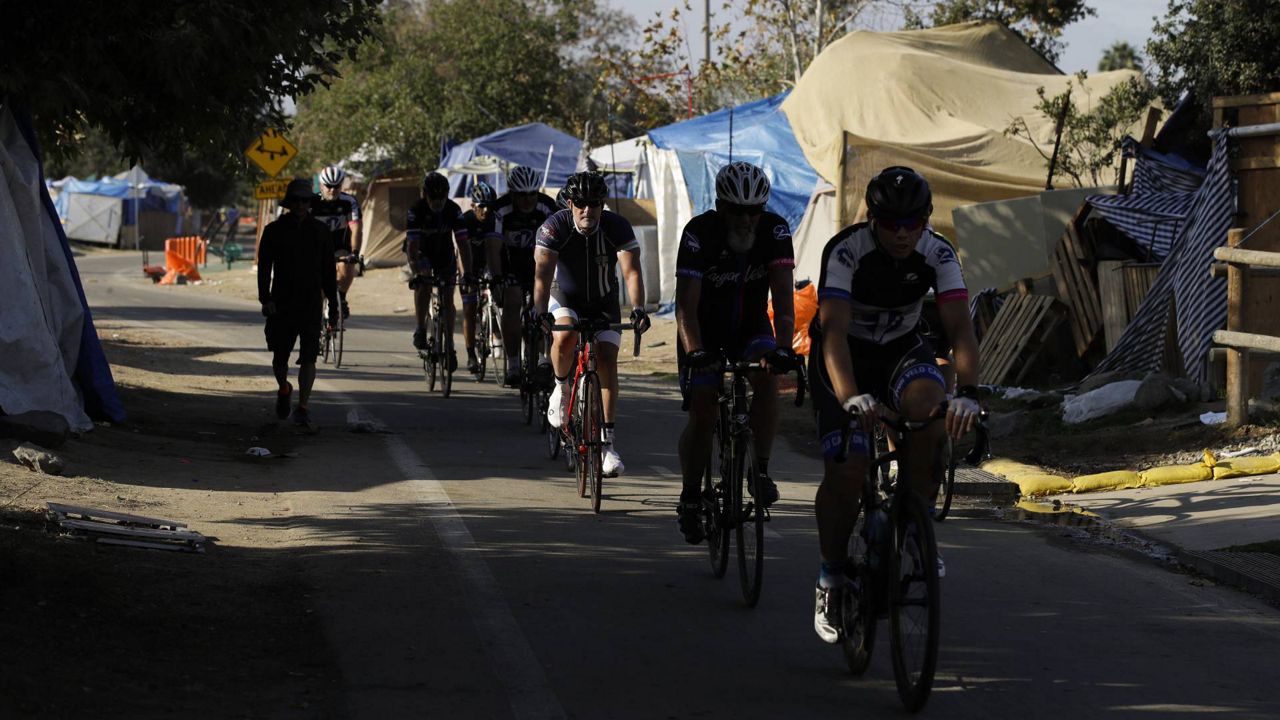ORANGE COUNTY, Calif. — The city of Newport Beach recently issued a one-year, $30,000 grant to help connect area homeless people with community service projects.
The city sought out Trellis International, a Costa Mesa-based nonprofit run by Ian Stevenson. Stevenson founded the organization in 2011, launched it as a 501(c)(3) in 2013 and became the first full-time member in 2015.
At first, Trellis International helped run a local check-in where homeless people could safely leave personal items. A few years later, they launched a “community impact team,” the program to which Newport Beach just issued a grant. The team holds weekly meetings where the homeless can learn what projects are available. Once a task is complete, they are rewarded with a gift card from a local business.
The projects can be a valuable source of structure and community for some people, Stevenson explained. But it’s not for everyone. Some people aren’t physically or mentally well enough to execute the tasks.
“What the team meetings do is, it lets them see the possibilities,” Stevenson said. “If they want to move forward, then they can see how to do that.”
Trellis International staff help coordinate and manage the projects. They’re also problem solvers, and they assist with acquiring identification and even help connect people in the program with permanent housing.
The hope is that the routine can lead to permanent jobs for some. For others, including those who aren’t able to participate in projects, it’s a safe space to connect with other necessary services. Stevenson noted that they’re able to spread the word through the check-in service they help run, providing them with enough people to do all the projects.
Stevenson added that the “community impact team” model has been working in Costa Mesa since about 2014, borrowing from existing programs in Los Angeles.
The nonprofit uses other models, too. It has partnered with the cities of Irvine and Orange on separate service events that pair business sponsorships with volunteers to work on city projects. Love Irvine Day — an annual event — mobilized roughly 600 volunteers for 29 projects last year. Love Orange Week has yet to be launched, Stevenson said, but he expects it to be a weeklong event. Neither is expressly geared toward the homeless, but both use the same principles.
"We’re trying to perpetuate this idea of collaboration," he said. "How do the churches, the businesses, the cities work better together? There are so many good things going on, but it’s generally not coordinated, and nobody is talking to each other."
Related Stories
- Heal the Bay volunteers pick up more than 5,000 pounds of trash on annual Coastal Cleanup Day
- Pop-up market supports local business owners who suffered hardship during pandemic
- Lynwood staff looks to turn the page as city turns 100
- 'Labor of Love' event helps 800 families in need as expanded unemployment benefit programs expire
Cities across the county have become creative with how they approach growing homelessness numbers.
Homelessness is a hot-button issue for many local governments, and meetings with agenda items on the topic are often the most attended and heated of the year. Newport Beach is no different. In recent years, the city has expanded its efforts to reduce the number of homeless people on the streets by making joint investments with Costa Mesa on a bridge shelter. The city is also looking into properties where homeless people can eventually be housed.
The challenge for cities has been locating which people need help, keeping contact with them and building enough trust to finally deliver services. The “community impact team” is another tool to accomplish some of the same goals.
But for Stevenson, it’s less about services and more about returning a sense of dignity.
“For people experiencing homelessness, they’ve lost a lot of hope,” he said. “We want them to see they can make a difference.”
